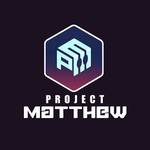Critical evaluation
The research on Project Matthew's tokenomics provides a solid foundation but lacks depth in several critical areas, impacting its comprehensiveness. While it addresses core aspects such as blockchain infrastructure, token utility, and earning mechanisms, significant gaps remain in areas like token allocation, vesting schedules, and long-term sustainability. These limitations affect the ability to draw robust conclusions about the game's economic model and its alignment with Web3 gaming standards.
-
The analysis of blockchain infrastructure is thorough but lacks details on decentralization and environmental impact.
- While BNB Smart Chain's high TPS and low fees are highlighted, the research does not provide concrete data on its decentralization or environmental performance.
- This omission limits the ability to assess how well BSC aligns with the growing demand for sustainable and decentralized blockchain solutions.
-
The token model is well-explained but lacks clarity on allocation and vesting schedules.
- The research does not specify how tokens are allocated among stakeholders, including developers, investors, and the community.
- There is no information on vesting schedules, which are critical for understanding long-term incentives and potential token dilution.
-
The economic stability measures are outlined but lack depth in addressing long-term sustainability.
- While buybacks and staking mechanisms are discussed, the research does not explore how the model will adapt to changing market conditions or player behavior.
- The absence of a clear supply cap raises questions about the long-term impact of token emissions on the game's economy.
-
Smart contract and wallet infrastructure analysis is incomplete, particularly regarding security audits and user protection.
- The research does not mention whether the smart contracts have undergone third-party audits, a critical factor for ensuring security.
- There is no detailed discussion on wallet security measures, such as key management or protection against vulnerabilities.
Follow-up questions
How does Project Matthew's token allocation address concerns about fairness and long-term stakeholder alignment?
- Without understanding the distribution of tokens among developers, investors, and the community, stakeholders cannot evaluate whether the model incentivizes long-term project success or risks centralizing power.
What measures are in place to ensure the long-term sustainability of the token economy?
- The absence of a clear supply cap and detailed strategies for adapting to market changes raises concerns about the game's ability to maintain economic balance over time, which is critical for player trust and retention.
Have Project Matthew's smart contracts undergone third-party audits, and what security protocols are in place to protect player assets?
- Smart contract vulnerabilities can lead to significant losses for players. Without knowing the robustness of the security measures, stakeholders cannot assess the reliability of the game's infrastructure.
How does Project Matthew's blockchain infrastructure address decentralization and environmental sustainability?
- Decentralization and sustainability are increasingly important in Web3 gaming. Without this information, stakeholders cannot evaluate how well the game aligns with industry standards and player expectations.




